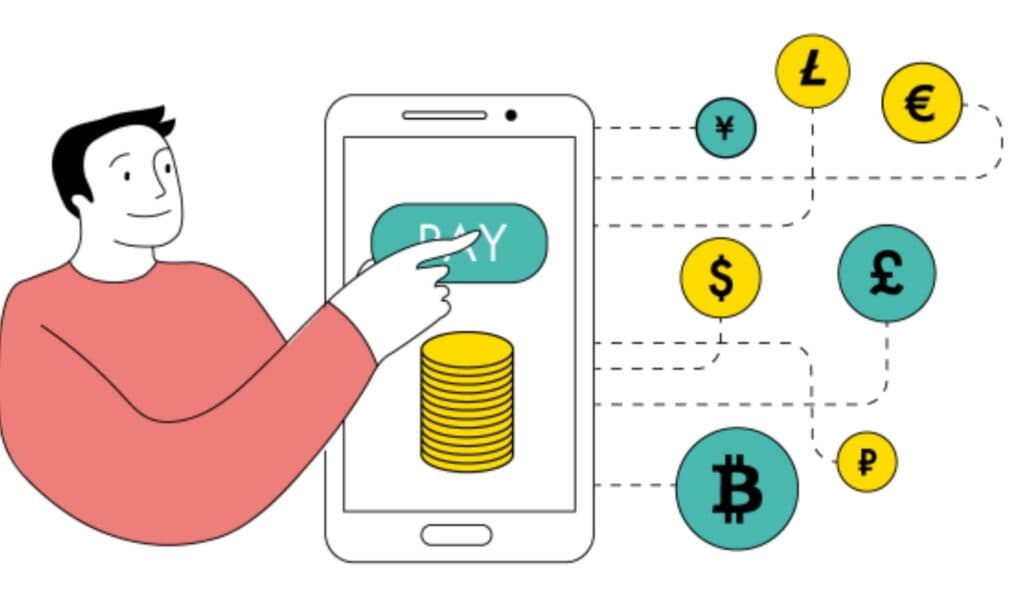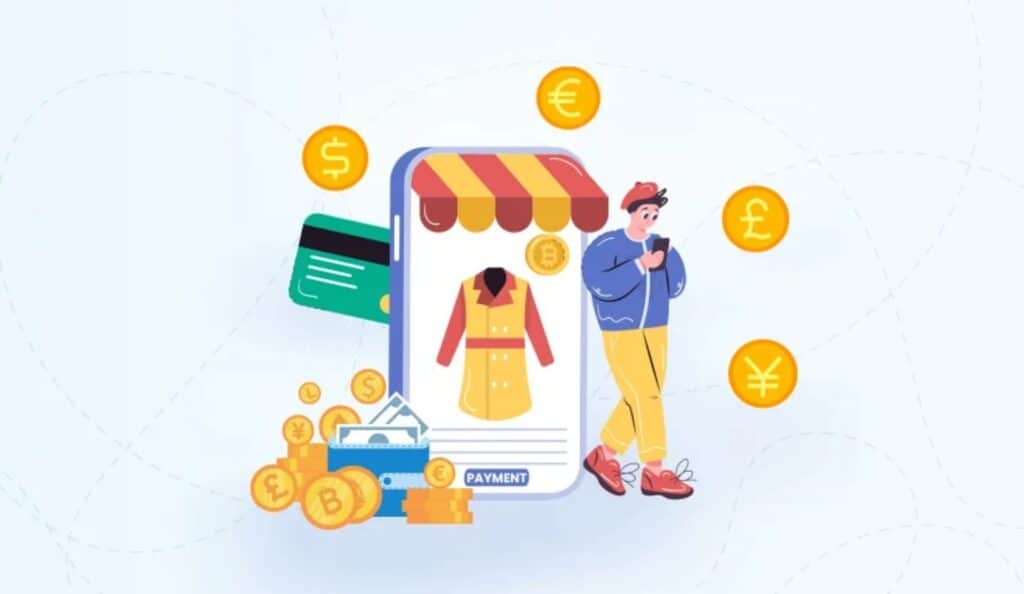
By Catharine Proctor March 29, 2025
Most companies operate on a global scale today, allowing them to acquire quality products and services from around the world. Because global trade increasingly uses multi-currency payments, allowing buyers and sellers to transact in their own currency, these payments also have to do with regional rules taxes, and variations.
Traditional payment methods and choosing the right one have aided small businesses by making online payments quick and inexpensive, but they can impose high fees on currency exchanges. A multi-currency payment system is able to minimize these fees and facilitate safe and easy online shopping for customers.
What is a Mult-Currency Gateway?

To understand multi-current gateway it is important to understand payment gateway. In a simple sense, a payment gateway is a service that allows websites to accept payments, sending customer payment information to the company that is receiving the money. It links a website with a payment processor, such as a bank. The advantages of these additional payment gateways are related to their simple set-up, cost-effectiveness for businesses involved, and secure processing.
In that sense, multi-currency gateways are not the same as standard gateways as they enable payments in multiple currencies. This allows companies to sell to customers in other nations, doing so in the customer’s own currency. For instance, British pounds may only be accepted by a UK firm, however, with a multi-currency gateway, it can also accept euros, dollars, and others, allowing the company to deal with more customers.
The value of different currencies varies depending on factors like economy and supply and demand. This can create indulgent fees and taxes. Multi-currency payment providers assist businesses in navigating these changes and making international payments smooth and cost-effective.
What Does Having a Multi-Currency Payment Gateway Mean?
Multi-currency payment processing allows customers to pay online in different currencies. Traditional payment systems typically receive payments in US dollars (USD), which they then convert into an expensive operation for sellers because of the additional fees. Multi-currency payment systems allow customers to transact in different international currencies, thus lowering expenses. You know a customer pays in GBP, and the money goes to a US account without surcharges. This offers customers more options that help drive sales. Multi-dimensional payment methods are offered on the website so that the customers can view the prices in their currency saving a few bucks on their side as well as that of the sellers and making sure they feel safe while making the purchase.
Multi-Currency- What are they used For

Transaction for International Businesses
Multicurrency payments allow international businesses to simplify their transactions and build relationships with their clients and customers by conducting business in local currencies.
These payment systems enable sellers to receive payments from various countries and provide payouts in the currency of the customer’s choice, reducing fees for all parties involved.
Online Shopping
In online shopping or e-commerce, multicurrency payments allow online businesses to serve customers globally and make it easier for them to shop, which can potentially increase sales.
Online shopping allows sellers to sell to customers anywhere in the world, enabling them to expand their business. Having multi-currency payments also saves sellers money and improves their user experience.
Used for Sending Money
Multicurrency payments are often used to send money to family members or friends in another country to receive it in the local currency.
Used by Travelers
Multicurrency payments are used by travelers to pay for goods or withdraw cash in the local currency to eliminate the hassle of exchanging money and poor exchange rates.
Used by Investors and Traders
Multicurrency payments are often employed by investors and traders in international markets to purchase and dispose of assets.
Used by Freelancers and Remote Workers
Multicurrency payments allow freelancers and remote workers to get paid in their preferred currencies, making accounting easier when dealing with clients in different countries.
Nonprofits
International charities may also receive large donations in foreign currencies, which can incur significant costs, and eat away at funds that could support needy communities, making multi-currency processing useful.
Global Business
Global businesses frequently have to pay suppliers in other countries and, without multi-currency payment processing, can incur hefty currency conversion fees that can strain their relationships with international vendors.
How Does it Work
Firstly, a buyer initiates a transaction by selecting a product or service on a seller’s site and choosing their preferred currency during checkout. The currency is then converted to the current exchange rate and the buyer sees the total cost and/or any fees.
Next, they select a payment method, such as credit card, PayPal, digital wallet, ACH, or wire transfer. It forwards the payment information to the payment processor and the banks to allow approval.
Thus, the net amount is deducted from the buyer’s bank account in their favorable currency and then remitted to the seller’s bank account in the seller’s primary currency.
Subsequently, when the payment is done, both the buyer and seller are notified and the receipt with the details of the multicurrency payment goes to the buyer.
Features of Multi-Currency Gateway
Currency Value Exchange
Foreign currency values change when exchange is made, leading to large price disparities between the time a sale is made and when it is settled, this is referred to as the FX risk. A quality multi-currency payment gateway will help mitigate this risk by fixing the currency rate before a sale is settled or by quoting you the real-time market rate when a transaction takes place.
Customer Preferred Currency
When you subscribe to a new service, confirm that the payment gateway accepts the currencies your customers prefer. Check the list of supported currencies to see if your target market is included, as this is something you do not want to miss if you lose sales opportunities.
Protection Towards Fraud
Choose a solution that includes robust tools to identify and identify fraud in cross-border payments, minimize chargebacks, and prevent payment failure.
Integration is Flexible
An online store payment gateway should be able to plug into your current systems seamlessly so that it integrates with your existing payment and accounting software, online store, and invoicing tools.
Choosing A Multi-Currency Payment System

Regulation and Compliances
This is especially important for international trade where payments may need to be handled in multiple currencies due to the cross-border nature of the transaction. However, businesses must factor in rules and laws when selecting a payment solution. A good payment provider should offer some help with these rules so that businesses can concentrate on expansion and not be anxious about breaking the law.
Detecting Fraud
Fraud detection is extremely crucial for online businesses, particularly those with a foreign clientele. Criminals exploit vulnerabilities within the payment system to extract funds. So security is the main concern, and automated fraud protection management with intelligent technology plays an essential role here.
Support From Local Customers
Local customer support is highly important as well. Customers want options based on their location, which is why a multi-currency payment provider must provide a wide selection of local payment methods, currencies, and shipping options to build customer trust and boost sales.
Benefits of Multi-Currency Payment
There are various benefits of using multi-currency Payment
- Multi-currency features assist businesses in overcoming the challenge of entering and scaling in international markets by enabling them to set up local pricing and sales without resorting to setting up local bank accounts for each.
- Dynamic currency conversion allows customers to pay in their own currency during the purchasing process, thereby ensuring their happiness and driving sales.
- They can smart pricing strategies based on local market conditions and competition. By reducing the amount of work and mistakes in trying to convert currencies, advanced payment systems make transactions in various currencies easier.
- When businesses hold money in various currencies to capitalize on favorable exchange rates or investment opportunities, cash flow management is improved.
- It is easier for companies that have multiple currencies to follow rules and regulations because they can change quickly as rules and regulations change. To sum up, multi-currency features are of great assistance for businesses functioning globally.
Challenges And How To Prevent Them

- Multi-currency payments can benefit businesses but also pose risks. Fluctuations in currency values can make accepting payments in different currencies with stable profits challenging. In order to mitigate these risks, businesses can implement strategies such as natural hedging and local pricing to align costs and revenue in the same currency.
- Dealing with multi-currency payments can create more work for a business, and utilizing a centralized treasury management system and routinely enhancing processes is useful. Staying in touch with local regulators will help businesses comply with the new rules. Local experts can advise you on regulations, providing a smoother process.
- Selecting a payment system with low conversion fees and regularly checking and negotiating fees with providers will also make it possible for businesses to save on transaction costs. Overall, holding onto currencies will generate savings in the long run.
- Because payment systems integrations can be complex and lengthy, modular and application programming interface integration can be valuable. Allowing customers to checkout in their local currency significantly increases customer trust and decreases abandoned carts. Local payment methods also boost sales and customer loyalty.
- Businesses should implement a multi-layered approach using encryption, tokenization, and regular audits to protect sensitive information. Teaching staff the latest security procedures keeps all staff aware of the risks.
Conclusion
In today’s world, businesses that want to grow internationally need multi-currency payment options. These systems allow customers to pay in different currencies, which helps reduce extra fees, build trust, and increase sales.
There are challenges like changing exchange rates, rules to follow, and fraud risks. However, businesses can deal with these by selecting safe and affordable payment solutions. With a good plan, companies can make global transactions easier, set better prices, and build strong connections with customers around the world, leading to long-term growth and success.